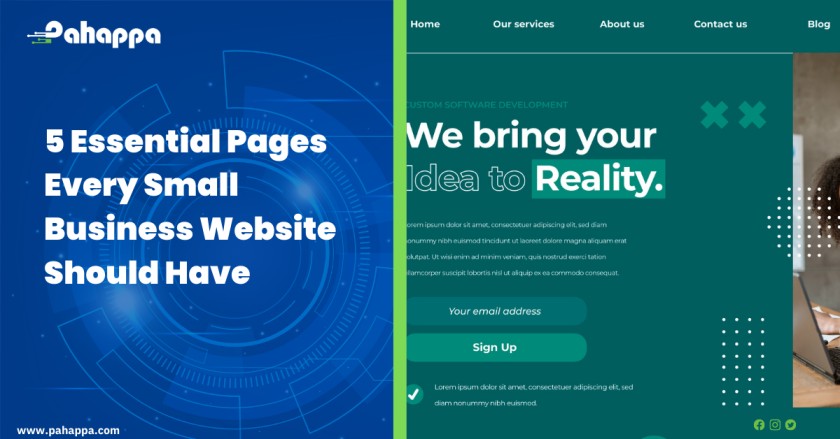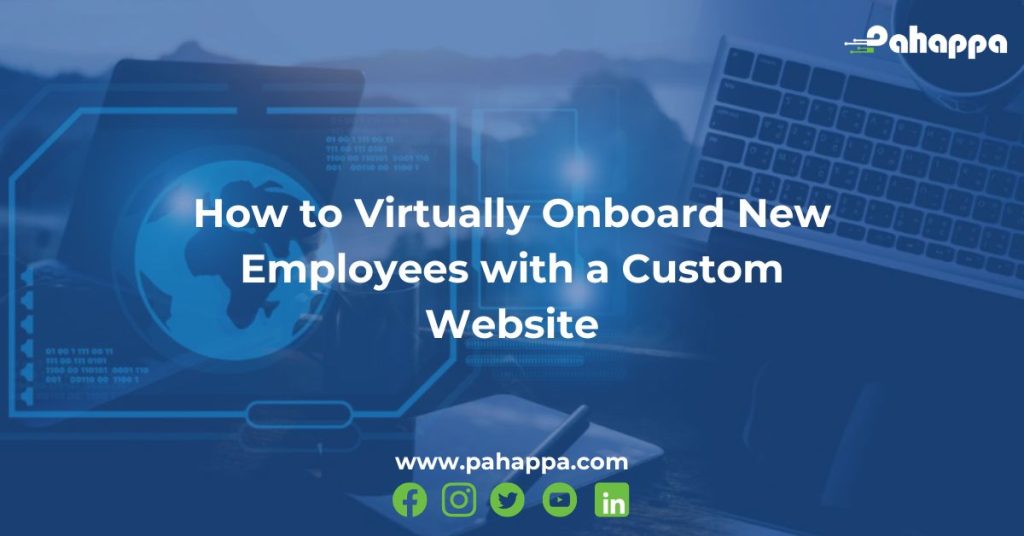Starting a business is an exciting venture, but creating a website that effectively communicates your brand message and captures the attention of potential customers can be daunting. A well-designed website can be the difference between a thriving business and a struggling one. Understanding the key components of a successful small business website is essential to ensure that your online presence is visually appealing, functional, and informative. In this article, we explore the five essential pages that every small business website should have to maximize its potential and set it up for success.
Making sure that your website has a few essential pages that will help your visitors understand what your business is all about and how you can help them is important if you own a small business. The following five pages ought to be present on every small business website:
- Home page
One of the most essential sections on your website is the home page. The homepage is probably one of the most often visited pages on your site, even though not every visit will begin there (some visitors may arrive through other web pages in the search engine results). In order to encourage visitors to give your business a chance, make sure it is engaging enough.
The home page should include:
- An engaging yet concise explanation of what your business does, the benefits you offer, and the reasons why customers should select you over competitors.
- A list of the key goods and services you offer, each with an easily understood explanation of how it could solve clients’ problems.
- Attractive photos of you, your team, or the goods you sell in action.
- One or more client references to increase credibility and demonstrate the standard of service they may expect from you.
- A clear and effective call to action that directs visitors to the following action.
- About Us Page
Most new visitors will go to the About Us page to find out more about you and what you stand for, as well as to make sure you’re a genuine business. This is a vital page to have on your website, so make sure you use it to demonstrate that you’re a fantastic business to work with.
The About Us page should include:
- A story that simplifies your business. Try to be as brief and friendly as possible.
- A description of the business in terms of how you could assist potential clients. Visitors should be able to identify with your values, feel a part of your journey, and believe that you are the sole business that can assist them in reaching their objectives.
- A picture or two of you and/or your team will help visitors get to know you better and feel more confident in your abilities.
- A request for action. Even though you might feel that this page doesn’t require one, every page actually does. Use a compelling call-to-action to direct visitors to the following step.
- Products or Services Page
In recent years, product or service pages have taken prominence over home pages. Why? Since the majority of website visitors come from search engine results. Therefore, if you search on Google for a website developer to develop a website, you’ll probably find results with pages that are relevant to that particular search (and click to visit).
Make sure you have web pages specifically designed to showcase your goods and services.
The Products or Services Page should include:
- An overview of each of the major product or service categories you provide, a link to the page with additional details about each, and a list of the categories themselves.
- Try to include the cost of your goods or services wherever you can. If you are unable to be exact, including some estimations or a pricing range, such as “website development ranges “between $40-$60 per piece,” could be beneficial.
- Images that show your team working on a project or that display the product from various viewpoints.
- Contact Us Page
If you’re offering services, a contact us page can serve as an essential source of leads for your business to succeed. People may visit your Contact page in addition to filling out forms or viewing your hours of operation to hunt for proof that you are an actual business.
The Contact us Page should include:
- A collection of current contact details, including an email address, phone number, form, physical location (if available), etc.
- Opening hours.
- If applicable, directions to your place of work and a map with a pin indicating your precise location.
- Blog page
A blog is a valuable tool for connecting with your audience, sharing your expertise, and driving traffic to your website. Use your blog to provide helpful tips, share industry news, and answer common questions that your customers may have. You can also use your blog to showcase your unique perspective and establish your business as a thought leader in your industry.
Remember to promote your blog posts on social media and other online channels to drive more traffic to your website.
Incorporating these five essential pages into your small business website, you can create a powerful online presence that effectively communicates your brand message and captures the attention of potential customers. Remember, a well-designed website is a critical tool for success in today’s digital age, so don’t overlook the importance of investing in your online presence. Contact us today to get started!











